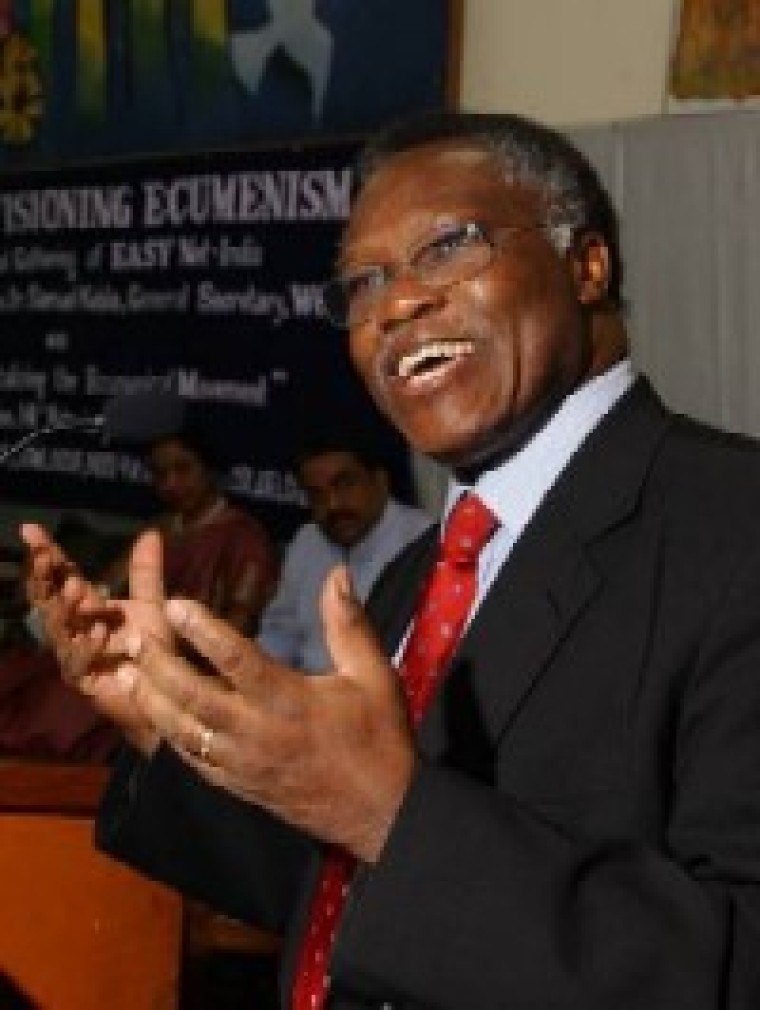
In an interview with the Vatican daily newspaper, l'Osservatore Romano, Rev. Kobia expressed his hope that all Christians, regardless of their denominational affiliations, could pray, worship together, and feel welcome at the Lord's Table at every church.
"My vision for the ecumenical movement is that by the mid-21st century we will have reached a level of unity such that Christians everywhere regardless of their confessional affiliations, can pray and worship together and feel welcome to share in the Lord's Table at every church," said Kobia.
Currently, both the Roman Catholic Church and the Eastern Orthodox Churches prohibit other Christians to share in their ceremonies of celebrating the Eucharist, the sacrament that commemorates Jesus' last supper and in which bread and wine are consecrated and consumed.
By sharing the Eucharist among all Christians together, Rev. Kobia hopes this example could show the peace-making role the church could play in healing the division among humanities. As such, he was committed to working with the Roman Catholics to attain this dream.
"… The Church can help humanity to overcome all divisions and the people of the world be able to live together in peace and harmony regardless of their backgrounds and identities. Towards that end I am convinced that the relationship between the WCC and Rome needs to be stronger and deeper in the coming years. Personally I am committed to take that relationship to greater heights."
He emphasised the important role the World Council of Churches (WCC) had played in overcoming the enmity left over by the two world wars, especially in Europe. Furthermore, he also stressed the importance of the Second Vatican Council in paving a way for churches to engage in 'meaningful' ecumenism cooperation.
"Ecumenical cooperation and the search for unity among the churches has definitely played a role in overcoming the heritage of two world wars and building peaceful relationships in Europe," said the WCC leader. "Who would have thought at the beginning of the last century that only some decades later Orthodox, Anglicans, Lutherans, Reformed, Methodists, Baptists and churches of other traditions would be working together in the World Council of Churches?
"Surely, the Second Vatican Council was a watershed and opened the door to meaningful ecumenical co-operation between the Roman Catholic Church and many of the member churches of the WCC."